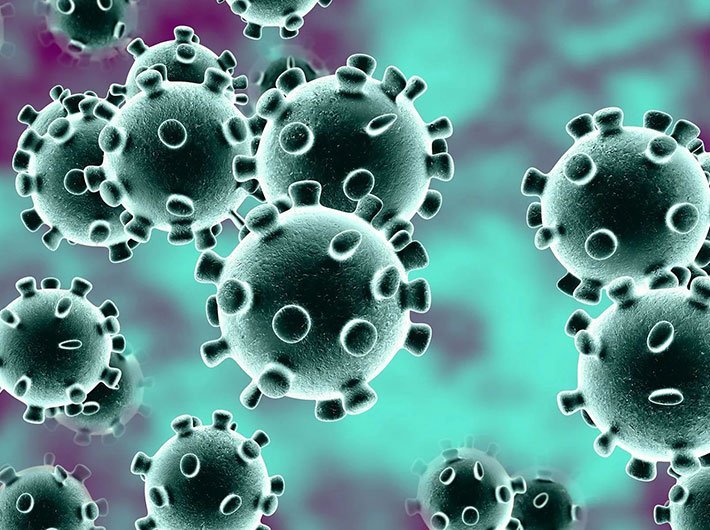The ministry of home affairs (MHA) on Wednesday issued an ‘Order with Guidelines for Surveillance, Containment and Caution’, effective for the month of December, noting that “to fully overcome the pandemic, there is need to maintain caution and to strictly follow the prescribed containment strategy, focussed on surveillance, containment and strict observance of the guidelines/SOPs”.
The main focus of the Guidelines is to consolidate the substantial gains that have been achieved against the spread of COVID-19 which is visible in the steady decline in number of active cases in the country, an official note said.
“Further, keeping in view the recent spike in new cases in few states/ UTs, ongoing festival season and onset of winter, it is emphasised that to fully overcome the pandemic, there is need to maintain caution and to strictly follow the prescribed containment strategy, focussed on surveillance, containment and strict observance of the guidelines/ SOPs issued by MHA and ministry of health & family welfare (MOHFW). Local district, police and municipal authorities shall be responsible to ensure that the prescribed containment measures are strictly followed. States and UTs, based on their assessment of the situation, may impose local restrictions, with a view to contain the spread of COVID-19,” it said.
Highlights of the Guidelines:
Surveillance and Containment
States/ UTs to ensure careful demarcation of Containment Zones by the district authorities, at the micro level, taking into consideration the guidelines prescribed by MoHFW in this regard. The list of Containment Zones will be notified on the websites by the respective District Collectors and by the States/ UTs. This list will also be shared with MoHFW.
Within the demarcated Containment Zones, containment measures, as prescribed by MoHFW, shall be scrupulously followed, which includes:
Only essential activities shall be allowed in the Containment Zones.
There shall be strict perimeter control to ensure that there is no movement of people in or out of these zones, except for medical emergencies and for maintaining supply of essential goods and services.
There shall be intensive house-to-house surveillance by surveillance teams formed for the purpose.
Testing shall be carried out as per prescribed protocol.
Listing of contacts shall be carried out in respect of all persons found positive, along with their tracking, identification, quarantine and follow up of contacts for 14 days (80 percent of contacts to be traced in 72 hours).
Quick isolation of COVID-19 patients shall be ensured in treatment facilities/ home (subject to fulfilling the home isolation guidelines).
Clinical interventions, as prescribed, shall be administered.
Surveillance for ILI/ SARI cases shall be carried out in health facilities or outreach mobile units or through fever clinics in buffer zones.
Awareness shall be created in communities on COVID-19 appropriate behaviour.
Local district, police and municipal authorities shall be responsible to ensure that the prescribed Containment measures are strictly followed and State/ UT Governments shall ensure the accountability of the officers concerned in this regard.
COVID-Appropriate behaviour
State/ UT Governments shall take all necssary measures to promote COVID-19 appropriate behavior and to ensure strict enforcement of wearing of face masks, hand hygiene and social distancing.
In order to enforce the core requirement of wearing of face masks, States and UTs may consider administrative actions, including imposition of appropriate fines, on persons not wearing face masks in public and work spaces.
For observance of social distancing in crowded places, especially in markets, weekly bazaars and public transport,Ministry of Health and Family Welfare (MoHFW) will issue a SOP, which shall be strictly enforced by States and UTs.
National Directives for COVID-19 Management shall continue to be followed throughout the country, so as to enforce COVID-19 appropriate behavior.
Strict adherence to the prescribed SOPs
All activities have been permitted outside Containment Zones, except for the following, which have been permitted with certain restrictions:
International air travel of passengers, as permitted by MHA.
Cinema halls and theatres, with upto 50 percent capacity.
Swimming pools, only for training of sports persons.
Exhibition halls, only for business to business (B2B) purposes.
Social/ religious/ sports/ entertainment/ educational/ cultural/ religious gatherings, with upto a maximum of 50 percent of the hall capacity, with a ceiling of 200 persons in closed spaces; and keeping of the size of the ground/ space in view, in open spaces.
However, based on their assessment of the situation, State/ UT Governments may reduce the ceiling to 100 persons or less, in closed spaces.
For the information of all, the Guidelines enclose a list of 19 SOPs that have been issued from time to time to regulate the activities that have been permitted. These SOPs shall be strictly enforced by the authorities concerned, who shall be responsible for their strict observance.
Local restrictions
States and UTs, based on their assessment of the situation, may impose local restrictions, with a view to contain the spread of COVID-19 such as night curfew. However, State/ UT Governments shall not impose any local lockdown (State/ District/ sub-division/City level), outside the containment zones, without prior consultation with the Central Government.
States and UTs also need to enforce social distancing in offices. In cities, where the weekly Case Positivity Rate is in more than 10 percent, States and UTs concerned shall consider implementing staggered office timings and other suitable measures, with a view to reduce the number of employees attending office at the same time, thereby ensuring social distancing.
No restriction on Inter-State and intra-State movement
There shall be no restriction on inter-State and intra-State movement of persons and goods including those for cross land-border trade under Treaties with neighbouring countries. No separate permission/ approval/ e-permit will be required for such movements.
Protection for vulnerable persons
Vulnerable persons, i.e., persons above 65 years of age, persons with co-morbidities, pregnant women, and children below the age of 10 years, are advised to stay at home, except for meeting essential requirements and for health purposes.
Use of Aarogya Setu
The use of Aarogya Setu mobile application will continue to be encouraged.
